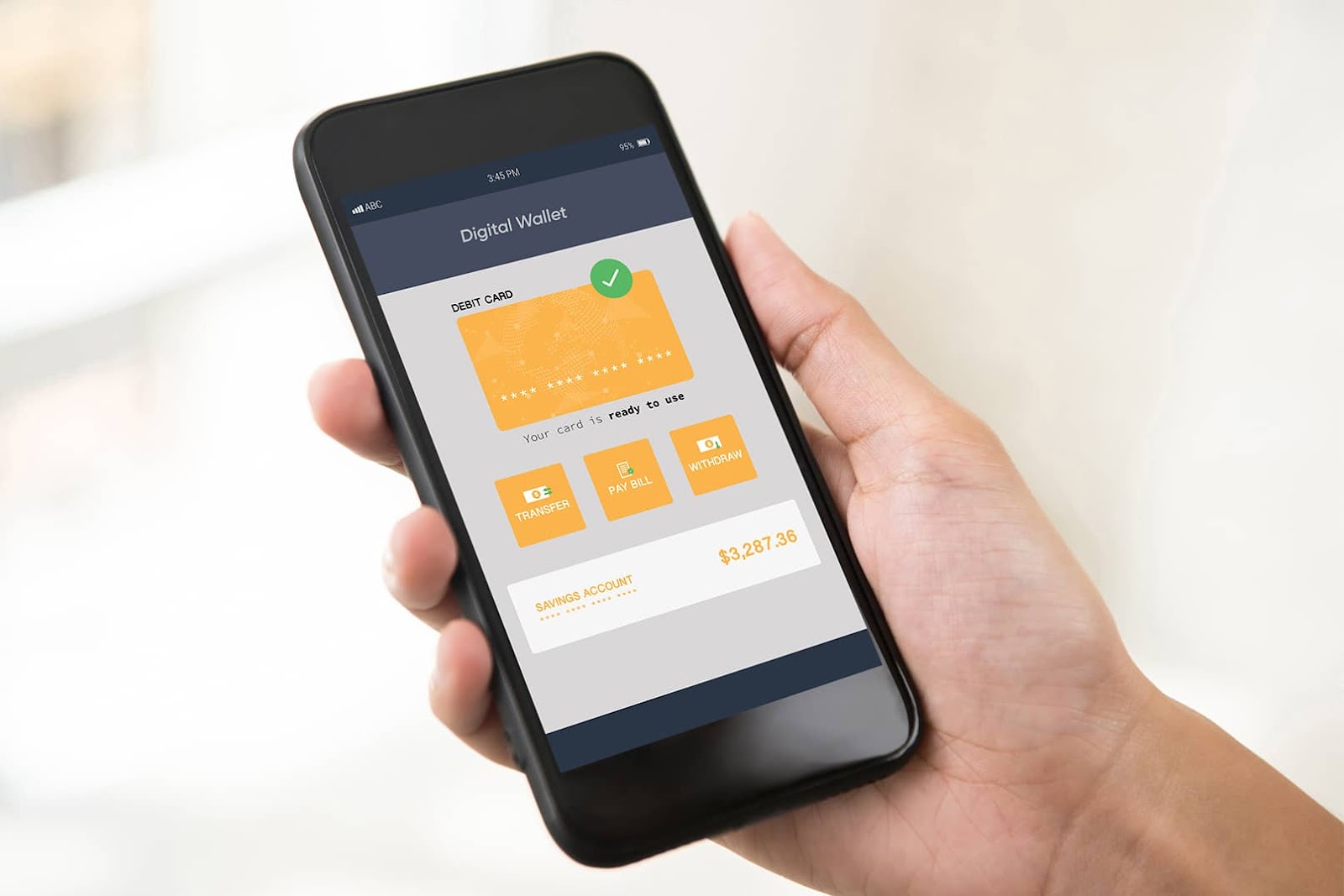The Role of iOS App Developers in Building Secure E-Wallet Applications
In today’s digital era, mobile payment systems and electronic wallets (e-wallets) have become integral to our daily financial transactions. As more users transition from traditional wallets to digital alternatives, the demand for secure and reliable e-wallet applications has skyrocketed. E-wallet apps provide users with a convenient, efficient, and secure way to store money, make payments, and manage financial transactions directly from their smartphones. However, the rise in popularity of e-wallets has also made them attractive targets for cybercriminals, making security a top priority in their development.
This is where iOS app developers play a crucial role. iOS app development is known for its robust security frameworks and extensive control over the app ecosystem, making it an ideal platform for developing secure e-wallet applications. In this article, we will explore the essential role iOS app developers play in building secure e-wallet apps and why it is essential for businesses to hire iOS app developers when embarking on e wallet app development.
Understanding E-Wallet Applications and Security Concerns
Before diving into the role of iOS developers, it’s important to understand the security concerns surrounding e-wallet applications. E-wallets store sensitive user data, including personal information, bank account details, and payment history. With such valuable data at stake, e-wallet apps are at risk of various security threats, including:
- Data breaches – Cybercriminals may attempt to access the personal data of users, such as credit card details or login credentials.
- Phishing attacks – Fraudsters may deceive users into revealing their login information or personal data via fake websites or apps.
- Malware attacks – Malware can compromise devices and intercept financial transactions, leading to unauthorized access to funds.
- Man-in-the-middle attacks – Cyber attackers can intercept communication between the e-wallet app and servers, leading to data leakage or modification.
To mitigate these risks and ensure the safety of user data, it is essential to integrate advanced security measures during the development phase. Here’s where the expertise of iOS app developers comes into play.
The Role of iOS App Developers in E-Wallet Security
iOS app developers are responsible for implementing features that enhance the overall security and functionality of an e-wallet application. Below are the key aspects where iOS app developers contribute to ensuring the app is safe, efficient, and trustworthy.
1. Secure User Authentication
One of the first lines of defense for an e-wallet app is user authentication. iOS app developers ensure the integration of secure authentication mechanisms such as:
- Biometric authentication: Leveraging Touch ID (fingerprint) or Face ID (facial recognition) ensures that only the rightful user can access the app, making unauthorized access significantly more difficult.
- Two-factor authentication (2FA): Developers implement 2FA to add an extra layer of security. With 2FA, users must provide a second form of verification (such as a one-time password or an SMS code) in addition to their regular password.
- Password security: iOS developers implement stringent password requirements, such as minimum length, special characters, and periodic password changes to prevent unauthorized access.
By incorporating these robust authentication methods, iOS developers ensure that users’ sensitive data is protected right from the login screen.
2. Data Encryption
Encryption is a critical component in ensuring the confidentiality and integrity of data. iOS app developers use Apple’s built-in encryption technologies, such as Data Protection API, to encrypt sensitive information like personal details, credit card numbers, and transaction histories. This ensures that even if a hacker gains access to the user’s device or cloud storage, the encrypted data will be unreadable without the decryption keys.
You may also read about: luxury weekend getaways
Moreover, iOS developers ensure end-to-end encryption for data transmission between the e-wallet app and its servers, preventing interception during data transfer.
3. Tokenization of Payment Data
For financial transactions, iOS app developers use tokenization to enhance the security of credit card information. Tokenization involves replacing sensitive payment information (such as a credit card number) with a unique token that holds no real value outside the e-wallet app system. This way, even if hackers gain access to the payment system, they won’t be able to use the token to steal money.
iOS developers incorporate tokenization along with encryption techniques to further secure payment data, making it virtually impossible for attackers to intercept and misuse users’ payment credentials.
4. Secure API Integration
E-wallet apps often rely on third-party APIs to connect with payment gateways, banks, and other services. However, integrating APIs from external sources can open doors to potential security vulnerabilities. iOS app developers ensure that these integrations are performed securely by:
- Validating third-party API providers: Only trustworthy and secure APIs are integrated into the e-wallet app to minimize exposure to cyber threats.
- Using secure communication protocols: Developers use protocols like HTTPS (SSL/TLS encryption) to ensure that any data exchanged between the app and external APIs is protected.
- Regular API testing: iOS developers constantly monitor and test the APIs for potential vulnerabilities to ensure the app remains secure over time.
By ensuring the APIs used are secure, iOS developers reduce the risk of attacks stemming from third-party services.
5. App Code Protection and Security Updates
To prevent reverse engineering and code tampering, iOS developers take steps to protect the app’s code from unauthorized access. Techniques like obfuscation (making the code harder to understand) and code signing (ensuring that the app’s code comes from a trusted source) are commonly used.
Moreover, iOS developers stay proactive in addressing emerging security vulnerabilities by regularly releasing security updates for the app. These updates include patches to fix newly discovered security flaws and improve overall app stability.
6. Sandboxing and Secure Storage
iOS offers the ability to sandbox apps, meaning that each app operates in its own isolated environment, preventing unauthorized access to other apps or system files. This feature is crucial for ensuring that malicious actors cannot access sensitive information stored by other apps on the device.
iOS developers also utilize secure storage options such as Keychain to store sensitive data (like authentication tokens and passwords) in a highly secure manner. Keychain uses advanced encryption techniques to ensure that sensitive data is securely stored and accessed only by the e-wallet app.
7. Compliance with Regulatory Standards
In addition to building a secure app, iOS app developers must ensure that the e-wallet app complies with global security and privacy regulations, such as PCI DSS (Payment Card Industry Data Security Standard), GDPR (General Data Protection Regulation), and other relevant guidelines. Compliance ensures that the app meets industry standards for data protection and user privacy.
By adhering to these standards, iOS developers help build trust with users and ensure that the e-wallet app is legally and ethically responsible.
Why Hire iOS App Developers for E-Wallet App Development?
Developing a secure and user-friendly e-wallet app is no small feat. Hiring iOS app developers with expertise in building secure mobile applications is essential for the following reasons:
- Expertise in security best practices: iOS app developers have an in-depth understanding of Apple’s security features and tools, allowing them to implement the best security measures for e-wallet apps.
- Knowledge of platform-specific challenges: iOS app developers are familiar with the unique security challenges that come with iOS development and are able to navigate these effectively.
- Ensuring compliance: Developers are well-versed in legal and regulatory requirements for e-wallet apps, ensuring the app complies with security standards and protects user privacy.
- Faster time-to-market: By hiring experienced developers, you ensure the app is developed efficiently without compromising on quality or security, allowing you to launch your e-wallet app sooner.
Conclusion
The role of iOS app developers in building secure e-wallet applications cannot be overstated. With the constant threat of cyberattacks and the increasing demand for digital payment solutions, it is essential to integrate robust security measures into e-wallet apps from the ground up. Whether it’s through secure user authentication, encryption, tokenization, or compliance with industry regulations, iOS app developers are integral to ensuring the success of e-wallet apps in providing a secure and seamless experience for users.
If you’re planning to develop an e-wallet app, hire iOS app developers with the skills and experience necessary to build a safe, reliable, and feature-rich application that users can trust. Their expertise will not only safeguard your app from potential security threats but also ensure its long-term success in the highly competitive mobile payment market.






